How Much For Catalytic Converter? Getting The Best Catalytic Converter

How Much For Catalytic Converter?
How Much For Catalytic Converter? A catalytic converter is a vital component of a car engine, and it helps to protect the environment by reducing emissions. The cost of a catalytic converter can vary depending on the make and model of your car. If your car is more than a few years old, it likely has a catalytic converter. This part of the exhaust system helps to reduce noxious gases and pollutants released into the atmosphere. In fact, catalytic converters are so effective that they are now standard in all new cars.

How Much For Catalytic Converter? If you're like most drivers, you're probably not too familiar with catalytic converters. In fact, you may be wondering what they are and what role they play in your car. So, if you're looking to buy a new catalytic converter for your car, it's important to know how much you should expect to pay. In this blog post, we'll provide some tips on how to get the best deal on a quality catalytic converter. We'll also take a look at some of the factors that will affect the overall cost of the converter. So, whether you're just curious about catalytic converters or in the market for one yourself, read on!
What is a Catalytic Converter?
A catalytic converter is a device that helps to convert exhaust fumes from an internal combustion engine into less harmful substances. The converter makes use of a catalyst, which is a substance that helps to accelerate a chemical reaction. The catalyst used in a catalytic converter is typically platinum or palladium.
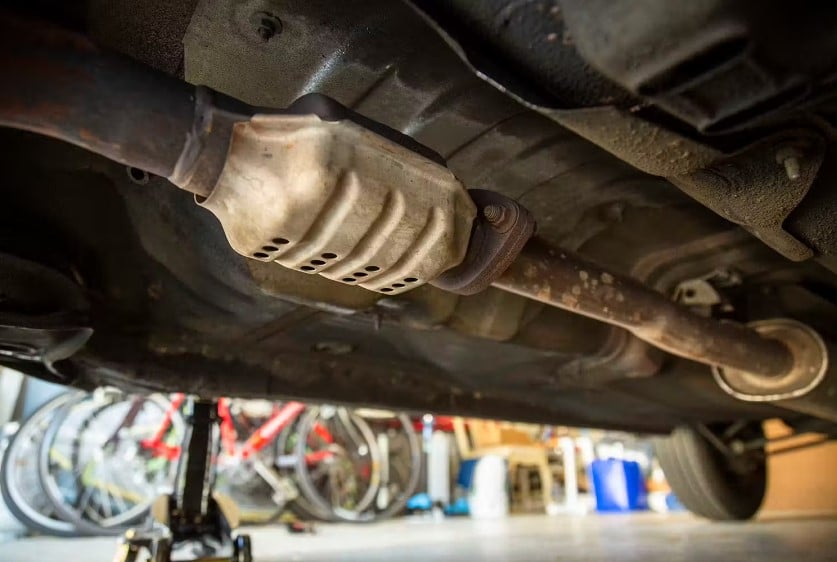
The converter works by causing a chemical reaction between the exhaust fumes and the catalyst, which breaks down the harmful substances in the fumes into less harmful substances. As a result, the converter helps to reduce the overall pollution emitted by an engine. Catalytic converters are required by law in many countries in order to help reduce emissions from vehicles.
How Much For Catalytic Converter?
A catalytic converter is an important emissions control device in a vehicle. It reduces harmful pollutants in exhaust gases from an internal combustion engine into less-harmful pollutants before they are released into the atmosphere. Converters can become damaged and need to be replaced, so it is important to know how much they cost. Depending on the make and model of your vehicle, catalytic converters can range in price from $100 to $2,000. To get an accurate estimate of the cost of replacing your catalytic converter, it is best to seek out a professional mechanic.

With their experience and expertise, they will be able to give you a more accurate estimate of the cost of the replacement and the labor involved. However, if you are experienced with car repairs, you may be able to replace the converter yourself, which will save you money on labor costs. Either way, it is important to be aware of the cost of replacing a catalytic converter so that you can Budget accordingly.
Catalytic Converter Labor Costs
If you need to have the converter replaced, it's important to factor in the cost of labor as well. The average cost of labor for a catalytic converter replacement is between $100 and $200, depending on the type of car you have. As a result, the total cost of replacing a catalytic converter can be quite high. However, the long-term benefits of reducing emissions will likely outweigh the short-term costs.
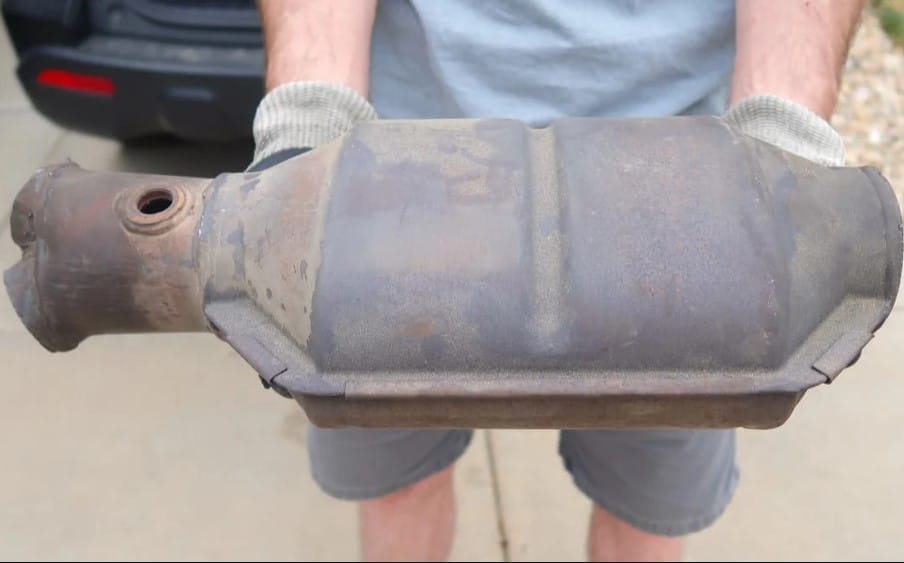
How to Get the Best Catalytic Converter?
A catalytic converter is an important part of a car's emission control system. It helps to reduce pollutants in exhaust gases, making them less harmful to the environment. There are a few things to keep in mind when shopping for a catalytic converter. First, it is important to choose a converter that is compatible with your car's make and model. Secondly, you will need to decide which type of converter you need. There are two main types of converters: those that use platinum and those that use palladium.

Platinum converters are more expensive, but they are also more effective at reducing emissions. Palladium converters are less expensive, but they offer less emission reduction. Finally, you will need to decide how much money you are willing to spend on a converter. Converters can range in price from a few hundred dollars to several thousand dollars. By keeping these factors in mind, you can be sure to find the best catalytic converter for your needs.
How to install a catalytic converter?
A catalytic converter is a vital component of a car's exhaust system, responsible for reducing harmful emissions. While most modern cars come equipped with a catalytic converter, it is possible for them to become damaged or break down over time. When this happens, it is necessary to replace the converter. Installing a new catalytic converter is a relatively simple task that can be completed in a few minutes with just a few basic tools.
To begin, locate the old catalytic converter and disconnect it from the exhaust pipe. Next, remove any bolts or brackets that are holding it in place. With the old converter removed, clean the exhaust pipe and surrounding area before installing the new converter. To do this, simply use a wire brush to remove any debris or rust.
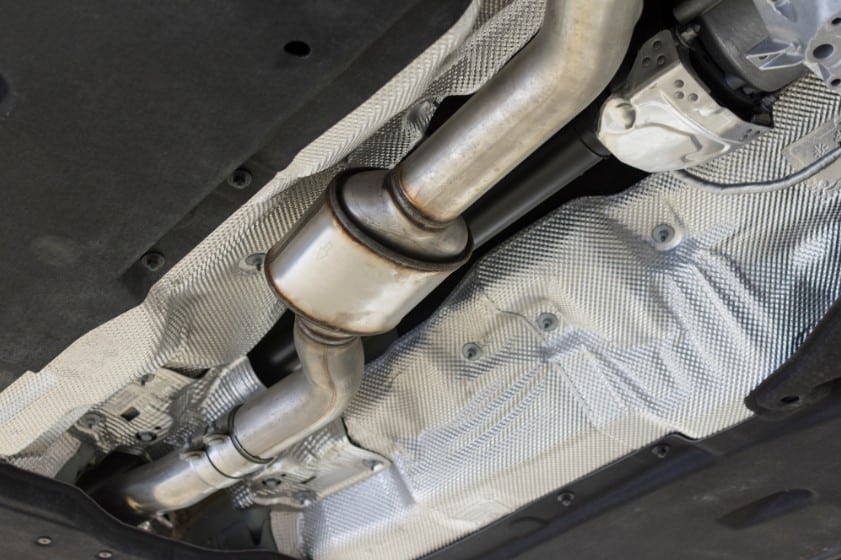
Once the area is clean, line up the new catalytic converter with the exhaust pipe and secure it in place using bolts or brackets. Finally, reconnect any hoses or wires that were disconnected earlier and start the engine to test the new converter. Following these simple steps will ensure that your car's emissions are reduced and help to protect the environment.
The benefits of having a catalytic converter
If you're like most people, the last time you got your car serviced, you may not have given much thought to the exhaust system. But if you have a catalytic converter, it's important to keep it in good condition. Here are some of the benefits of having a catalytic converter.
Helps to reduce emissions
A catalytic converter is a device that helps to reduce emissions from an internal combustion engine. By converting pollutants into less harmful substances, catalytic converters play an important role in protecting the environment. In addition, they also help to improve fuel economy by allowing engines to run at higher temperatures. As a result, catalytic converters provide both environmental and economic benefits. While they are not required in all vehicles, they are becoming increasingly common in new cars and trucks.
Protects the environment
In addition to protecting the environment, catalytic converters also have a number of other benefits. They can improve fuel economy, and they help to reduce noise pollution from cars and trucks. As a result, catalytic converters play an important role in protecting both the environment and public health.
Improves fuel efficiency
Doing so helps improve air quality and also reduces the emissions of greenhouse gases. In addition, a catalytic converter can also help improve fuel efficiency. This is because it helps to reduce the amount of fuel that is needed to power the engine. As a result, less fuel is burned and fewer emissions are produced. In turn, this can help to save money on fuel costs and also help to protect the environment.
Reduces engine noise
One of the main benefits of having a catalytic converter is that it can help to reduce engine noise. The catalyst helps to break down the pollutants into smaller molecules, which are then able to pass through the engine more easily. This reduction in exhaust noise can be significant, making it easier for drivers to communicate with one another and reducing the overall noise pollution from vehicles. Catalytic converters are an important part of many modern engines, and their benefits are clear.

Extends the life of your car's engine
A catalytic converter is a device that helps to reduce harmful emissions from your car's engine. By converting these emissions into less harmful compounds, the catalytic converter helps to protect the environment and extend the life of your car's engine. In addition, the catalytic converter can also help to improve fuel economy by reducing the amount of fuel that is required to power your car's engine. As a result, it is an important piece of equipment for any car owner who is concerned about the long-term health of their vehicle.
Helps to keep your car running smoothly
As any car owner knows, keeping your vehicle running smoothly is essential to maintaining its value and ensuring its longevity. One of the most important components of a car's engine is the catalytic converter. This vital piece of equipment helps to reduce harmful emissions by converting them into less harmful substances. In addition, the catalytic converter also helps to improve fuel efficiency and reduces engine noise. As a result, having a properly functioning catalytic converter is essential to keeping your car running smoothly.
Is relatively maintenance-free
One of the main benefits of catalytic converters is that they are relatively maintenance-free. Once they are installed, they do not require any special care or attention. They will continue to work effectively for the life of the vehicle, provided that the engine is running properly. Another benefit of catalytic converters is that they can significantly reduce emissions from a vehicle. This, in turn, can help to improve air quality and protect the environment.
By keeping these benefits in mind, you can see why it's important to have a catalytic converter. Not only will it help reduce emissions, but it will also protect the environment and improve your car's fuel efficiency. So if you're thinking about getting your car serviced, be sure to ask about the condition of your catalytic converter.
Why should I replace a catalytic converter or repair it?
The catalytic converter is an important emission control device in a vehicle’s exhaust system. Its purpose is to convert harmful pollutants in exhaust gas into less harmful compounds before they are released into the atmosphere. Unfortunately, over time the catalytic converter can become clogged or damaged, reducing its efficiency and causing potential engine problems. That’s why it’s important to have a catalytic converter that is in good working condition.
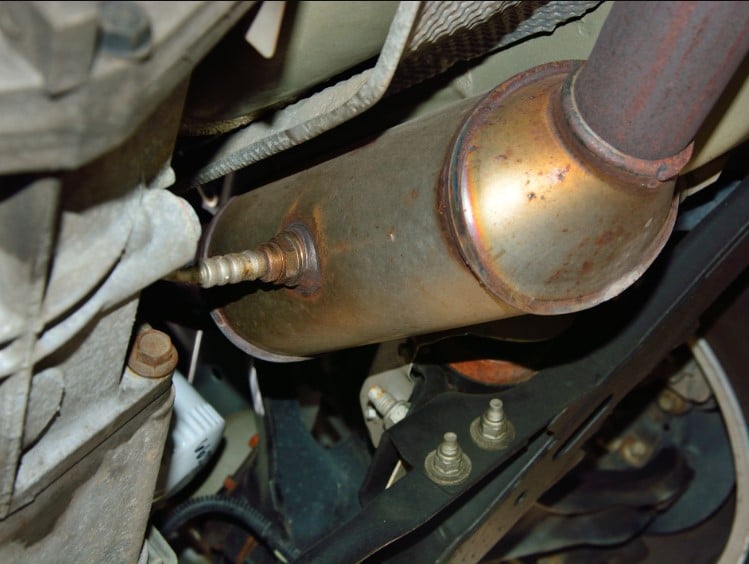
Replacing or repairing a damaged or clogged converter can help to improve a vehicle’s performance and fuel economy, and it can also help to reduce emissions. In some cases, it may even be required by law. So if you’re thinking about replacing or repairing your catalytic converter, be sure to do some research and make an informed decision. Doing so can help keep your vehicle running smoothly and efficiently for years to come.
How much does it cost to replace or repair a catalytic converter?
The cost of replacing or repairing a catalytic converter can vary depending on the make and model of the vehicle, as well as the severity of the damage. In general, however, it is usually fairly expensive to replace a catalytic converter. The average cost of a new catalytic converter is typically around $100 to $2,000, although it can be more or less depending on the vehicle. If the damage to the converter is not too severe, it may be possible to have it repaired instead of replaced. However, repair costs can still be fairly high, averaging around $500.

Ultimately, the best way to determine the cost of replacing or repairing a catalytic converter is to consult with a qualified mechanic. They will be able to assess the damage and give you an accurate estimate of the repairs or replacement cost.
What are the symptoms of a bad catalytic converter?
If your car's catalytic converter isn't working properly, you'll probably notice. Here are some of the most common symptoms of a bad catalytic converter. Keep in mind that not every car will experience all of these problems, and some may have additional symptoms specific to their make and model. If you're concerned that your catalytic converter might be going bad, it's best to take your car in for a check-up.
Reduced fuel economy
A bad catalytic converter can cause all sorts of problems, including reduced fuel economy. This is because the converter is not able to properly clean the exhaust gases, which results in the engine having to work harder to expel them. In addition, the build-up of emissions can cause the engine to run hotter than it should, leading to even further reductions in fuel economy. If you notice your car's fuel economy declining, it could be a sign that your catalytic converter needs to be replaced.
Engine misfires
Engine misfires can be one symptom of a bad catalytic converter. Other symptoms may include a decrease in fuel economy, poor engine performance, and an increase in emissions. If you suspect that your catalytic converter is failing, it's important to have it checked out by a mechanic as soon as possible. In some cases, a bad catalytic converter can cause damage to other parts of the engine. Left unchecked, a faulty catalytic converter can eventually lead to engine failure.
Decreased power and performance
A damaged or failed catalytic converter can cause decreased power and performance, as well as unusually high fuel consumption. In some cases, it can also lead to engine misfires and a visible increase in tailpipe emissions. If you suspect that your catalytic converter is not functioning properly, it is important to have it checked by a qualified mechanic as soon as possible. Failing to do so could result in damage to your vehicle's engine and other components.

Excessive engine noise
A damaged or failing converter can cause increased noise from the engine, as well as a decrease in power and acceleration. In some cases, it can also trigger the check engine light. If you suspect your catalytic converter may be failing, it's important to have it checked out by a qualified mechanic as soon as possible. Otherwise, you may end up causing further damage to your engine - and potentially voiding your warranty.
Check engine light is illuminated
Your car's catalytic converter is an important emission control device, so it's no surprise that a failing converter can trigger your check engine light. The converter uses a chemical reaction to convert harmful pollutants in exhaust gas into less harmful substances. Over time, the catalyst can become coated with oil and carbon deposits, which reduces its efficiency.
Eventually, the converter can become completely clogged, resulting in higher emissions and decreased engine performance. If you notice your check engine light is illuminated, it's best to have your car checked out by a mechanic as soon as possible. They can diagnose the problem and replace the converter if necessary. Ignoring the issue could lead to further damage to your vehicle's engine.
If you notice any of these symptoms, it’s important to have the vehicle diagnosed by a qualified mechanic as soon as possible. Ignoring the problem can lead to further damage to the engine and potentially costly repairs.
How can I prevent my catalytic converter from going bad?
Your vehicle's catalytic converter is an essential part of the emissions control system, and it can be costly to replace if it goes bad. Fortunately, there are several things you can do to help prevent your catalytic converter from going bad. First, make sure you keep your engine tuned up. A well-tuned engine runs more efficiently and produces fewer emissions.
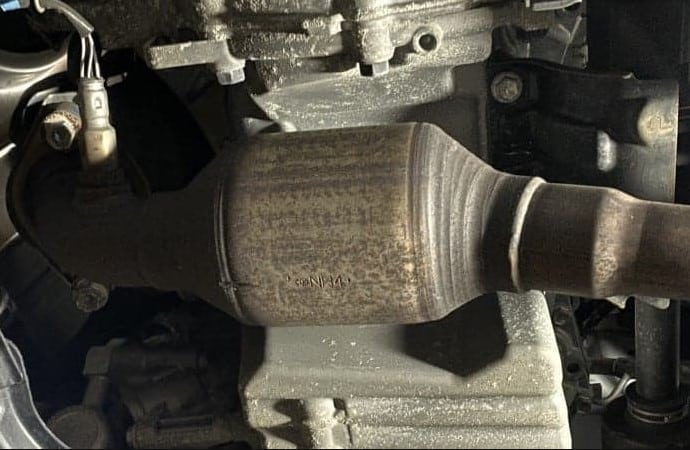
Second, use only high-quality gasoline in your vehicle. Cheap gas can contain impurities that can damage the catalytic converter. Finally, have your vehicle's exhaust system inspected regularly. A clogged or damaged exhaust system can cause the catalytic converter to overheat, which can shorten its lifespan. By following these simple tips, you can help keep your catalytic converter running smoothly for many years to come.
Is removing a catalytic converter an option?
A catalytic converter is a device that helps to reduce emissions from an internal combustion engine. By breaking down harmful pollutants into less harmful ones, catalytic converters play an important role in protecting the environment. However, some car owners choose to remove their catalytic converters in order to improve engine performance or save money on repairs. While this may give the car a temporary boost, it can ultimately do more harm than good.

Removing a catalytic converter can increase fuel consumption and emissions, and it can also damage the engine.
https://autoemc.net/blog/how-much-for-catalytic-converter/
Nhận xét
Đăng nhận xét